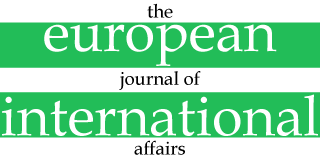We Are All in this Together or Are We?
The new transatlantic row over the rendition of terrorist suspects offers profound cause for public reflection even if, as appears, some European governments would prefer to gloss 2006 over its greyer areas. Immediately before the departure of Condoleeza Rice on her European visit in December the US administration declared the US line would be “we are all in this together and you need to look at yourselves as much as at us…”
Granted that Europe and the US have a common aim in preventing terrorist attacks on their civilian population, can one contemplate togetherness with, for example, the ruthless and cunning dictator of Uzbekistan, a recipient of US military aid and training whose use of torture is reported to have included boiling opponents to death? And behind the American statement lurks another question. Does Europe wish to conduct its counter-terrorism policy from the back seat of a car driven by the USA?
At the heart of successful counter-terrorism are accurate information and its efficient use. The methods of gathering this information and its practical application are many and varied and clearly effective international cooperation is vital. This is the domain of military and civil intelligence services, police work and intergovernmental trust. But all this becomes far more difficult if not impossible when the other half of the campaign, partnership with the public at large, is mishandled or ignored.
The civilian population anywhere can at times be passive, silent and totally engrossed in the trivialities of daily life but it is the sea in which the terrorist fish swims, locally or globally. It has been demonstrated time and time again, in Northern Ireland, Spain and now in Iraq, that isolation of terrorists from the support of the public is the sine qua non of success. The Islamic religion, or its exploitation for terrorist purposes, has been identified as the breeding ground for the perpetrators of the hideous deeds in New York and different European capitals. The nature of Islam and its impact on lifestyle means that the public which must be brought into partnership in the anti terrorist campaign is the Islamic population worldwide as well as locally.
Log in to Read More





